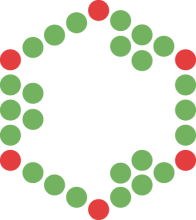New Drug Approvals 2013 - Pt. VI - Gadoterate Meglumine (DotaremTM)

On March 20th 2013, FDA approved Gadoteric Acid (as the meglumine salt; tradename: Dotarem; research code: P 449; CHEMBL: CHEMBL2219415), a gadolinium-based contrast agent (GBCA) indicated for intravenous use with magnetic resonance imaging (MRI) in brain (intracranial), spine and associated tissues of patients ages 2 years and older, to detect and visualize areas with disruption of the blood brain barrier (BBB) and/or abnormal vascularity of the central nervous system (CNS).
When placed in a magnetic field, Gadoteric Acid develops a magnetic moment. This magnetic moment enhances the relaxation rates of water protons in its vicinity, leading to an increase in signal intensity (brightness) of tissues. Gadoteric Acid enhances the contrast in MRI images, by shortening the spin-lattice (T1) and the spin-spin (T2) relaxation times.
Other GBCAs have already been approved by FDA for use in patients undergoing CNS MRI and these include Gadopentetate Dimeglumine (approved in 1988 under the tradename Magnevist; ChEMBL: CHEMBL1200431; PubChem: CID55466; ChemSpider: 396793), Gadoteridol (approved in 1992 under the tradename Prohance; ChEMBL: CHEMBL1200593; PubChem: CID60714; ChemSpider: 54719), Gadodiamide (approved in 1993 under the tradename Omniscan; ChEMBL: CHEMBL1200346; PubChem: CID153921; ChemSpider: 135661), Gadoversetamide (approved in 1999 under the tradename Optimark; ChEMBL: CHEMBL1200457; PubChem: CID444013; ChemSpider: 392041), Gadobenate Dimeglumine (approved in 2004 under the tradename Multihance; ChEMBL: CHEMBL1200571; PubChem: CID49799998; ChemSpider: 25046318) and Gadobutrol (approved in 2011 under the tradename Gadavist; ChEMBL: CHEMBL2218860; PubChem: CID15814656; ChemSpider: 26330337).
When placed in a magnetic field, Gadoteric Acid develops a magnetic moment. This magnetic moment enhances the relaxation rates of water protons in its vicinity, leading to an increase in signal intensity (brightness) of tissues. Gadoteric Acid enhances the contrast in MRI images, by shortening the spin-lattice (T1) and the spin-spin (T2) relaxation times.
Other GBCAs have already been approved by FDA for use in patients undergoing CNS MRI and these include Gadopentetate Dimeglumine (approved in 1988 under the tradename Magnevist; ChEMBL: CHEMBL1200431; PubChem: CID55466; ChemSpider: 396793), Gadoteridol (approved in 1992 under the tradename Prohance; ChEMBL: CHEMBL1200593; PubChem: CID60714; ChemSpider: 54719), Gadodiamide (approved in 1993 under the tradename Omniscan; ChEMBL: CHEMBL1200346; PubChem: CID153921; ChemSpider: 135661), Gadoversetamide (approved in 1999 under the tradename Optimark; ChEMBL: CHEMBL1200457; PubChem: CID444013; ChemSpider: 392041), Gadobenate Dimeglumine (approved in 2004 under the tradename Multihance; ChEMBL: CHEMBL1200571; PubChem: CID49799998; ChemSpider: 25046318) and Gadobutrol (approved in 2011 under the tradename Gadavist; ChEMBL: CHEMBL2218860; PubChem: CID15814656; ChemSpider: 26330337).

Gadoteric Acid is a macrocyclic ionic contrast agent, consisting of the chelating agent DOTA and gadolinium (Gd3+).
IUPAC: gadolinium(3+);2-[4,7,10-tris(carboxymethyl)-1,4,7,10-tetrazacyclododec-1-yl]acetic acid
Canonical Smiles: [Gd+3].OC(=O)CN1CCN(CC(=O)[O-])CCN(CC(=O)[O-])CCN(CC(=O)[O-])CC1
InChI: InChI=1S/C16H28N4O8.Gd/c21-13(22)9-17-1-2-18(10-14(23)24)5-6-20(12-16(27)28)8-7-19(4-3-17)11-15(25)26;/h1-12H2,(H,21,22)(H,23,24)(H,25,26)(H,27,28);/q;+3/p-3
The recommended dose of Gadoteric Acid is 0.2 mL/kg (0.1 mmol/kg) body weight administrated as an intravenous bolus injection at a flow rate of approximately 2 mL/second for adults and 1-2 mL/second for pediatric patients. Gadoteric Acid has a volume of distribution of 179 mL/kg and 211 mL/kg in female and male subjetcs, respectively, roughly equivalent to that of extracellular water, and an elimination half-life of about 1.4 hr and 2.0 hr in female and male subjects, respectively. Gadoteric Acid does not undergo plasma protein binding and it is not known to be metabolized. It is excreted primarily in the urine with 72.9% and 85.4% eliminated within 48 hours in female and male subjects, respectively. In healthy subjects, the renal and total clearance rates are comparable, with a renal clearance of 1.27 mL/min/kg and 1.40 mL/min/kg in female and male subjects, respectively, and a total clearance of 1.74 mL/min/kg and 1.64 mL/min/kg in female and male subjects, respectively.
All GBCAs, including Gadoterate Meglumine, carry a boxed warning about the risk of nephrogenic systemic fibrosis (NSF), a condition associated with the use of GBCAs in certain patients with kidney disease.
The license holder for Gadoterate Meglumine is Guerbet LLC and the prescribing information can be found here (Gadoteric Acid is also approved in Europe and the SPC can be found here).
IUPAC: gadolinium(3+);2-[4,7,10-tris(carboxymethyl)-1,4,7,10-tetrazacyclododec-1-yl]acetic acid
Canonical Smiles: [Gd+3].OC(=O)CN1CCN(CC(=O)[O-])CCN(CC(=O)[O-])CCN(CC(=O)[O-])CC1
InChI: InChI=1S/C16H28N4O8.Gd/c21-13(22)9-17-1-2-18(10-14(23)24)5-6-20(12-16(27)28)8-7-19(4-3-17)11-15(25)26;/h1-12H2,(H,21,22)(H,23,24)(H,25,26)(H,27,28);/q;+3/p-3
The recommended dose of Gadoteric Acid is 0.2 mL/kg (0.1 mmol/kg) body weight administrated as an intravenous bolus injection at a flow rate of approximately 2 mL/second for adults and 1-2 mL/second for pediatric patients. Gadoteric Acid has a volume of distribution of 179 mL/kg and 211 mL/kg in female and male subjetcs, respectively, roughly equivalent to that of extracellular water, and an elimination half-life of about 1.4 hr and 2.0 hr in female and male subjects, respectively. Gadoteric Acid does not undergo plasma protein binding and it is not known to be metabolized. It is excreted primarily in the urine with 72.9% and 85.4% eliminated within 48 hours in female and male subjects, respectively. In healthy subjects, the renal and total clearance rates are comparable, with a renal clearance of 1.27 mL/min/kg and 1.40 mL/min/kg in female and male subjects, respectively, and a total clearance of 1.74 mL/min/kg and 1.64 mL/min/kg in female and male subjects, respectively.
All GBCAs, including Gadoterate Meglumine, carry a boxed warning about the risk of nephrogenic systemic fibrosis (NSF), a condition associated with the use of GBCAs in certain patients with kidney disease.
The license holder for Gadoterate Meglumine is Guerbet LLC and the prescribing information can be found here (Gadoteric Acid is also approved in Europe and the SPC can be found here).
